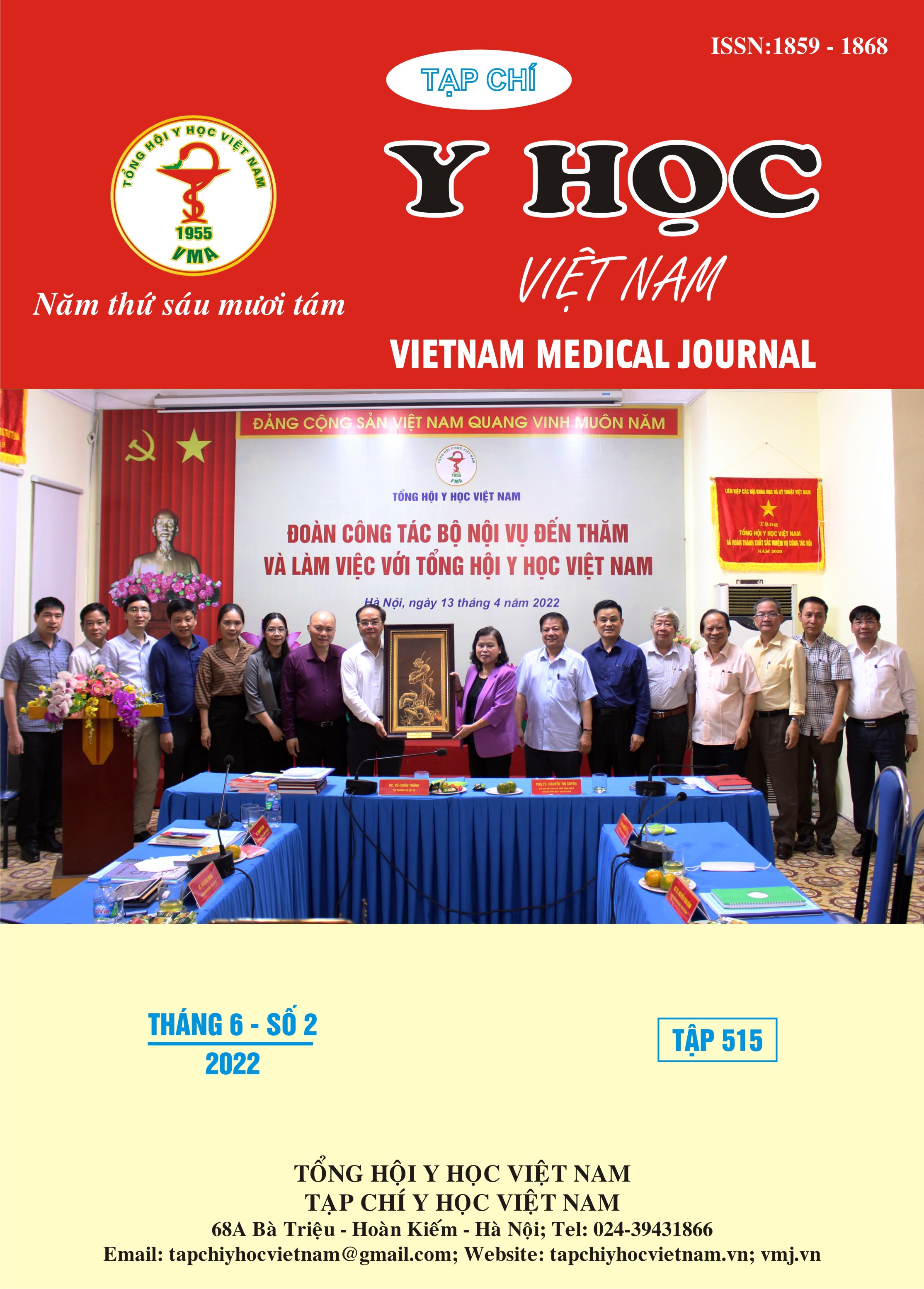THE ADVERSE EVENTS OF CHEMOTHERAPY OF TRIPLET REGIMEN CAP IN METASTATIC SALIVARY GLAND CARCINOMA
Main Article Content
Abstract
Objective: Analysing the adverse events of chemotherapy of triplet regimen CAP in metastatic salivary gland carcinoma at National Cancer Hospital from 2015 to 2021. Patients and method: Retrospective analysis of 36 patients with metastatic salivary gland carcinoma were diagnosed and treated with chemotherapy of CAP regimen at National Cancer Hospital from 2015 to 2021. Results: Most of patients were received 6 cycles of CAP regimen, accounted for 89.9%. Two hundred and four cycles were administered (mean, 5.67 cycles per patient). Full dose of chemotherapy in 33 of 36 patients. Delays, interruptions treatment and decreased dose of chemotherapy were presented 15.6% in our study. The myelosuppresstion was less frequent and usually less severe. Common hematologic adverse events were leukopenia and neutropenia, accounted for 44.4% and 47.2%, respectively. There were no report of hematologic AEs grade 4 or complications. Major non-hematologic toxic effects were nausea/vomiting and alopecia, usually grade 1-2. Conclusion: Chemotherapy of triplet regimen CAP showed good tolerance in patients with metastatic salivary gland carcinoma, toxicity grade 1-2 was predominant, no report of chemotherapy-related deaths occurred.
Article Details
Keywords
Metastatic salivary gland cancer, CAP regimen, National Cancer Hospital
References
2. Kaplan MJ, Johns ME, Cantrell RW (1986). Chemotherapy for salivary gland cancer. Otolaryngol Head Neck Surg. 1986;95(2):165.
3. Licitra L, Cavina R, Grandi C (1996). Cisplatin, doxorubicin and cyclophosphamide in advanced salivary gland carcinoma. A phase II trial of 22 patients. Ann Oncol. 1996;7(6):640.
4. Tsukuda M, Kokatsu T, Ito K, Mochimatsu I (1993). Chemotherapy for recurrent adeno- and adenoidcystic carcinomas in the head and neck. J Cancer Res Clin Oncol. 1993;119(12):756.
5. Dimery IW, Legha SS, Shirinian M (1990). Fluorouracil, doxorubicin, cyclophosphamide, and cisplatin combination chemotherapy in advanced or recurrent salivary gland carcinoma. J Clin Oncol. 1990;8(6):1056.
6. Venook AP, Tseng A Jr, Meyers FJ (1987). Cisplatin, doxorubicin, and 5-fluorouracil chemotherapy for salivary gland malignancies: a pilot study of the Northern California Oncology Group. J Clin Oncol. 1987;5(6):951.
7. Airoldi M, Pedani F, Brando V (1989). Cisplatin, epirubicin and 5-fluorouracil combination chemotherapy for recurrent carcinoma of the salivary gland. Tumori. 1989;75(3):252.
8. Farhat F, Kattan J, Culine S (1994). Efficacy of the combination of 5 fluorouracil, adriamycin and cisplatin (FAP protocol) in the treatment of metastatic cylindroma. Apropos of a case with review of the literature. Bull Cancer. 1994;81(1):47.


